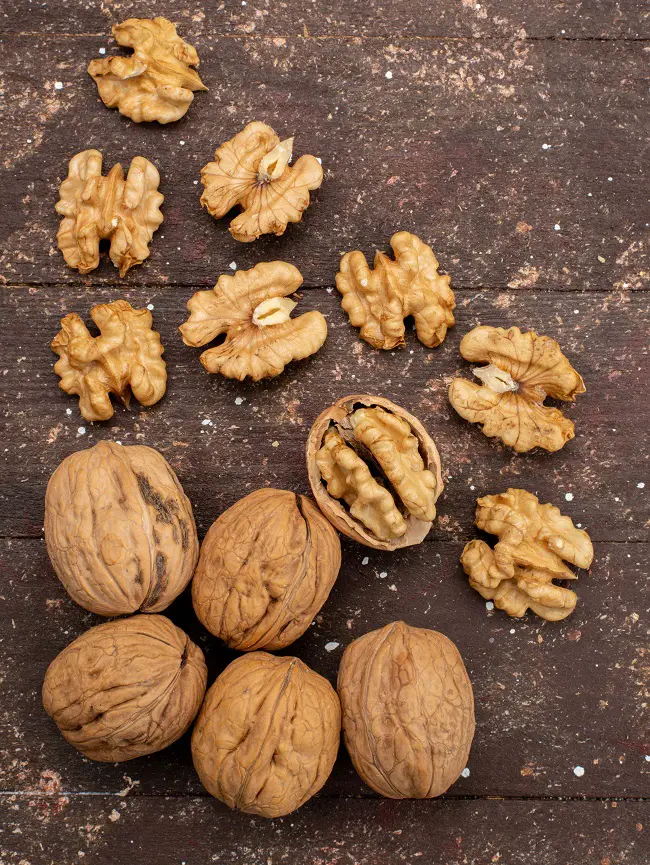Is Mushroom Coffee Good For You?

You’ve probably noticed people on social media enjoying a warm, coffee-like beverage. That drink is mushroom coffee, a popular choice among health-conscious influencers and wellness enthusiasts. While incorporating mushrooms into your diet for health benefits isn't a new concept—adaptogens have been staples in traditional Chinese and Ayurvedic medicine for millennia—it has recently gained mainstream attention.
Today, mushroom products like powders, extracts, tonics, and gummies are readily available, and many people are raving about their benefits. Interestingly, mushroom coffee tastes quite similar to regular coffee. But the question remains: is mushroom coffee truly beneficial, or is it just a passing fad?
What Is Mushroom Coffee
Mushroom coffee is a beverage that combines coffee with medicinal mushrooms, offering a unique blend of taste and potential health benefits. It is made by mixing ground coffee beans with powdered mushrooms.
These mushrooms are known for their adaptogenic and medicinal properties, which are believed to provide various health benefits.
Key Components
- Coffee: Regular coffee beans are used, providing the familiar flavor and caffeine content.
- Mushrooms: Medicinal mushrooms are dried and ground into a powder, which is then blended with the coffee. Each type of mushroom offers different potential benefits.
Common Types of Medicinal Mushrooms Used
- Chaga: Known for its antioxidant properties, it is believed to support immune health.
- Reishi: Used for its calming effects and potential to support sleep and stress reduction.
- Cordyceps: Believed to boost energy, athletic performance, and endurance.
Is Mushroom Coffee Good For You?

Mushroom coffee offers a unique blend of potential health benefits due to the inclusion of medicinal mushrooms. These mushrooms are rich in antioxidants, which can support immune function and reduce inflammation, potentially contributing to overall health.
Additionally, mushroom coffee typically contains less caffeine than regular coffee, making it a suitable choice for individuals sensitive to caffeine or seeking a milder stimulant effect.
However, while mushrooms themselves have demonstrated health-promoting properties, specific claims about mushroom coffee—such as improved sleep, reduced stress, and enhanced memory—often lack substantial scientific evidence.
As with any dietary supplement, the quality of ingredients and individual tolerances should be considered, and moderation is advised until further research substantiates the full scope of its benefits. Ultimately, incorporating whole mushrooms into your diet may offer more direct benefits.
Mushroom Coffee Health Benefits
While including mushrooms in the beverage does offer potential health benefits, it's clear that despite the established individual benefits of medicinal mushrooms and coffee, there are many unconfirmed health claims surrounding mushroom coffee.
Here are some potential health benefits associated with mushroom coffee.
1. Enhanced Immune Support

Mushroom coffee is believed to enhance immune function due to the presence of medicinal mushrooms like reishi, and chaga. These mushrooms are rich in bioactive compounds such as polysaccharides, beta-glucans, and antioxidants, which have been studied for their immune-modulating effects.
Polysaccharides and beta-glucans, plentiful in mushrooms, stimulate immune cells and bolster the body's defense mechanisms against pathogens. Additionally, antioxidants like triterpenoids and phenols help mitigate oxidative stress, which can weaken the immune system over time.
2. Reduced Inflammation
Mushrooms contain bioactive compounds such as polysaccharides and antioxidants that possess anti-inflammatory properties. When combined with coffee, known for its caffeine content and stimulating effects, these mushrooms may enhance the beverage's health profile.
Studies suggest that certain mushroom varieties can modulate inflammatory pathways in the body, potentially lowering markers of inflammation. This combination not only offers a unique flavor profile but also provides a functional beverage option for those seeking natural ways to support their health, particularly in managing inflammation-related conditions.
However, individual responses may vary, and further research is needed to fully understand the specific mechanisms and benefits of mushroom coffee in reducing inflammation.
3. Improved Focus and Concentration
Mushroom coffee is often promoted for its potential benefits on focus and concentration due to its unique blend of ingredients. Typically containing extracts from medicinal mushrooms like cordyceps, these fungi are believed to support cognitive function by promoting nerve growth and reducing inflammation.
Additionally, mushroom coffee often includes compounds like antioxidants and amino acids, which can contribute to overall brain health. The caffeine content in mushroom coffee provides a mild stimulant effect, aiding alertness without the jitteriness associated with regular coffee.
4. Increased Energy Levels

Mushrooms contain compounds believed to enhance mental clarity and physical stamina. Some mushrooms are renowned for their potential to improve cognitive function, increasing alertness and focus. Cordyceps, on the other hand, is thought to enhance cellular energy production, potentially boosting endurance and reducing fatigue.
By integrating these benefits with the moderate caffeine content present in coffee, mushroom coffee provides a balanced energy boost that some find more sustainable throughout the day compared to regular coffee alone, making it a favored option for those seeking a natural energy lift.
5. Stress Reduction
Cortisol, a stress hormone, impacts our bodies in various scenarios. Conditions such as depression, trauma, hypoglycemia, fever, and pain often lead to elevated cortisol levels. Research indicates that adaptogens, such as the mushrooms found in mushroom coffee, help regulate cortisol levels in both blood and saliva.
Reishi, known as the "mushroom of immortality," is believed to promote relaxation and calmness by regulating the body's stress hormone levels and potentially improving sleep quality. Thus, this beverage may offer assistance in stress management.
6. Better Sleep Quality

Mushroom coffee can contribute to better sleep quality primarily through the inclusion of adaptogenic mushrooms like reishi. Reishi mushrooms are renowned for their calming effects and ability to support the body's natural sleep cycles. They help regulate stress hormones such as cortisol, which can interfere with sleep when elevated.
By promoting relaxation and reducing anxiety, reishi mushrooms can make it easier to fall asleep and stay asleep. Additionally, mushroom coffee typically contains less caffeine than regular coffee, which helps prevent late-day consumption from disrupting sleep patterns. However, people may respond differently to reishi, and its calming effects might be subtle.
7. Antiulcer
Mushroom coffee may help manage ulcers due to the presence of certain compounds in medicinal mushrooms that can promote gastrointestinal health. Mushrooms like Reishi and Chaga contain polysaccharides, beta-glucans, and triterpenes, which have anti-inflammatory and immune-modulating properties.
These compounds can help soothe the gastrointestinal lining, reduce inflammation, and potentially aid in healing ulcers. The antioxidants in mushroom coffee can help protect cells from damage caused by oxidative stress, which is a contributing factor in ulcer development. While not a cure-all, incorporating mushroom coffee into your diet may complement other treatments and promote overall gut health.
8. Antioxidant Properties
Mushroom coffee boasts significant antioxidant properties, thanks to the inclusion of medicinal mushrooms. These mushrooms are rich in antioxidants such as phenols, triterpenoids, and polysaccharides. Antioxidants combat oxidative stress by neutralizing free radicals, which can damage cells and contribute to aging and various diseases.
Chaga mushroom, in particular, is known for its high ORAC (Oxygen Radical Absorbance Capacity) score, indicating its strong ability to absorb and neutralize free radicals. Regular consumption of mushroom coffee may help reduce inflammation, support immune function, and protect against cellular damage.
9. Anti-Cancer Potential

One prominent research focus on mushrooms is their potential to combat cancer. Several laboratory studies have indicated that mushrooms might inhibit cancer cell growth, but human trials are necessary to confirm these findings.
For instance, an in vitro study on a mushroom variety revealed that freeze-dried mushrooms could protect against leukemia. Additionally, another investigation used the extract on cancerous cells in test tubes and mice with cancer, discovering it could slow down the growth of various tumors.
10. Liver Health Support
Medicinal mushrooms found in mushroom coffee, such as reishi and chaga, are rich in bioactive compounds like triterpenoids and polysaccharides that offer hepatoprotective benefits. Reishi is particularly noted for its liver detoxification properties, enhancing liver function and facilitating the efficient elimination of toxins.
Chaga, with its high antioxidant content, helps reduce oxidative stress and inflammation, shielding the liver from damage. Additionally, these mushrooms aid in regulating enzymes critical for liver detoxification. Combined with the moderate caffeine content of coffee, mushroom coffee may provide a synergistic approach to promoting liver health and overall detoxification.
11. Cardiovascular Health

Mushrooms are rich in antioxidants and anti-inflammatory compounds, which can help reduce oxidative stress and inflammation, key factors in heart disease. Reishi, for instance, has been shown to lower blood pressure and cholesterol levels, both of which are critical for heart health.
Certain mushrooms may improve blood circulation and support the immune system, indirectly benefiting the cardiovascular system. While promising, these benefits are primarily based on preliminary studies, and more research is needed to confirm the direct impact of mushroom coffee on cardiovascular health.
12. Weight Management
Mushroom coffee is often promoted as a weight loss aid due to its potential to boost metabolism and enhance fat burning. While some research has shown promising results, other studies have found no significant impact on weight loss from consuming mushroom coffee.
The caffeine content in mushroom coffee is generally lower than that of regular coffee, which might reduce its effectiveness in boosting metabolism and supporting weight loss. Although mushroom coffee may offer some weight loss benefits, more research is needed to determine its true efficacy. It's essential to remember that the most effective weight loss strategies involve healthy eating, regular exercise, and maintaining a balanced lifestyle.
13. Improved Physical Performance

Mushroom coffee is becoming popular for its potential to enhance physical performance. Cordyceps, for example, is known to boost athletic performance by increasing the body's production of adenosine triphosphate (ATP), thereby enhancing energy levels and stamina. This mushroom is also believed to improve oxygen utilization, which can boost endurance and reduce fatigue.
Mushroooms may support cognitive function and focus, indirectly benefiting physical performance. Chaga, rich in antioxidants, can help reduce inflammation and accelerate recovery after intense workouts. While these benefits are related to the mushrooms themselves, their effectiveness in coffee form is still uncertain and requires further research.
14. Anti-Aging Effects
Mushroom coffee is a trendy drink with claims of anti-aging benefits, though research is ongoing. Medicinal mushrooms contain antioxidants, which help neutralize free radicals that damage cells and accelerate aging. Chronic inflammation is connected to many age-related illnesses, and some mushroom compounds may offer anti-inflammatory effects.
Certain mushrooms might promote nerve growth factors, possibly aiding brain health as we age. However, specific studies on the anti-aging effects of mushroom coffee are limited, and more research is needed to confirm these potential benefits.
15. Mood Enhancement

Mushroom coffee may improve mood thanks to the benefits of certain medicinal mushrooms in its blend. Reishi is often praised for its adaptogenic properties, helping the body manage stress and fostering a sense of calm.
Chaga, rich in antioxidants, may help reduce inflammation and oxidative stress, both of which are linked to mood disorders. These mushrooms might influence neurotransmitter activity, potentially alleviating symptoms of anxiety and depression. While anecdotal evidence supports these benefits, more research is needed to confirm the mood-enhancing effects of mushroom coffee.
16. Blood Sugar Regulation
Some studies suggest that mushrooms like maitake and shiitake contain beta-glucans, which can improve insulin sensitivity and help manage blood sugar levels. Beta-glucans are known for their potential to slow gastric emptying, which can reduce post-meal blood sugar spikes.
However, the concentration of beta-glucans in mushroom coffee might be relatively low, and thus might not have a significant impact on blood sugar regulation. While certain mushrooms used in mushroom coffee have properties that could be beneficial for blood sugar control, the effectiveness of mushroom coffee itself in this regard needs further research to establish its impact.
17. Bone Health
Reishi and Chaga mushrooms may possess qualities that help reduce inflammation, which is often linked to bone health concerns. These mushrooms are rich in antioxidants that could help reduce oxidative stress, potentially benefiting bone health, though more studies are needed to establish a clear connection.
Some mushrooms naturally provide important minerals like vitamin D and calcium, which are essential for strong bones. However, the levels of these minerals in mushroom coffee are likely minimal compared to what is needed from dietary sources. Most research in this area examines individual mushrooms rather than mushroom coffee and its effects on bone health.
Potential Side Effects Of Mushroom Coffee

Mushroom coffee, though popular, may come with certain potential side effects. Here’s an overview:
- Digestive Issues: Some people may experience stomach discomfort, nausea, or diarrhea, especially if they have sensitive digestive systems or if they consume too much.
- Allergic Reactions: Rarely, individuals may have allergic reactions to mushrooms or other ingredients in the coffee. Symptoms might include rash, itching, or swelling.
- Caffeine Sensitivity: Mushroom coffee still contains caffeine, which can cause jitters, insomnia, or increased heart rate in sensitive individuals.
- Impact on Blood Sugar: While some mushrooms may help regulate blood sugar, others might have an impact. Monitoring blood sugar levels is crucial if you have diabetes.
- Unregulated Supplements: The quality and concentration of mushrooms in coffee can vary. Unregulated products might contain contaminants or inconsistent levels of active ingredients.
- Lack of Human Studies: The primary drawback is the lack of human studies on the health effects of mushroom coffee. Most research has been performed in test tubes or on animals, leaving gaps in knowledge about safe dosage, who may benefit from it, who should avoid it, and potential interactions with medications, which raises safety concerns.
While it is generally safe for most people to try, it's important to consult your healthcare provider if you are on medication or have an existing health condition.
Recent posts
Nutrition
Nutrition
20 Vegetables That Are Rich In Iron
Iron is essential for our bodies to function well. When we don't get enough iron, we often feel weak and tired. It's important to address iron deficiency early by eating the right foods. Fortunately, many vegetables are rich in iron and can help prev...
Nutrition
15 Cauliflower Nutrition Facts And Health Benefits
Cauliflower, a cruciferous vegetable, resembles a white variation of its relative, broccoli. Like broccoli, it has closely bunched florets attached to a thick core, often surrounded by a few leaves. While white is the most common color, cauliflower i...
Nutrition
15 Benefits Of Drinking Pickle Juice
Believe it or not, pickle juice boasts surprising benefits beyond adding zip to your sandwich. Yes, you heard it right. The tangy brine that pickles swim in actually has several health benefits. So, forget the sugary drinks that tempt your crav...
Nutrition
Nettle Tea Health Benefits You Should Know
Nettle tea is a unique and flavorful way to support your well-being with the presence of packed vitamins, minerals, and antioxidants in its inventory. This earthy-flavored brew boasts anti-inflammatory power, offering relief from allergies, arthritis...
Nutrition
20 Health Benefits Of Walnuts
Walnuts, often referred to as the King Of Nuts or Brain Nuts have been consumed for centuries not only for their delightful taste but also for their abundance of benefits. Packed with several essential nutrients and compounds, walnuts are a nutrition...
Nutrition
14 Scientifically Proven Oolong Tea Benefits
Oolong tea comes from the tea plant (Camilla sinensis). The common black and green tea are also made from the same plant. The difference lies in the processing technique in which the oolong tea is semi-oxidized between green and black tea. Cons...







